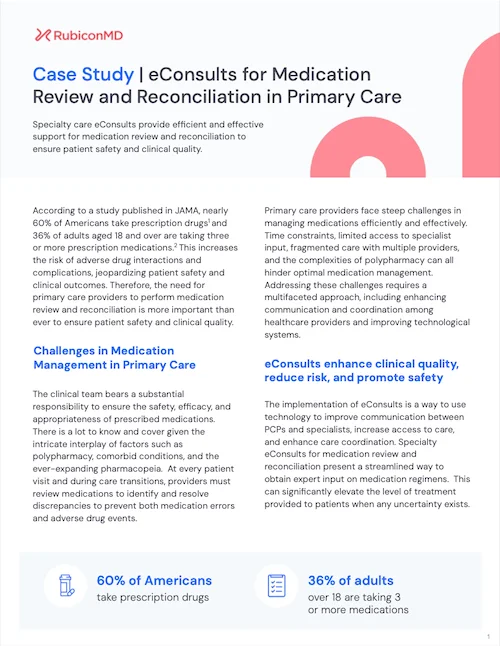How Virtual Specialists Help PACE Organizations Meet Regulatory Requirements
The Program of All-Inclusive Care for the Elderly (PACE) plays a vital role in helping older adults remain in their…
Access to specialty care shouldn’t depend on your zip code, insurance type, or income level—but for Medicaid patients, it often does. Limited provider networks and logistical challenges make it difficult to get timely care. Medicaid patients often face significant barriers to accessing timely and specialized healthcare services. These challenges include limited provider availability, long wait times, and geographic constraints. eConsults are a proven solution to address these issues by facilitating rapid, remote communication between primary care providers (PCPs) and specialists. This approach enhances care coordination, reduces unnecessary referrals, and improves health outcomes for Medicaid populations.
Medicaid beneficiaries frequently encounter obstacles such as:
Financial Constraints: Many Medicaid patients face financial barriers that limit their ability to afford necessary care, medications, or out-of-pocket costs associated with specialist visits.
Transportation Barriers: Geographic and financial constraints can make traveling to specialist appointments difficult for Medicaid patients.
Limited Access to Specialists: Many specialists are reluctant to accept Medicaid due to lower reimbursement rates, limiting the number of available providers. Shortages amongst mental health providers1 and women’s health providers disproportionately impact Medicaid recipients, fifty-four percent of whom are women.2
Extended Wait Times: Even when specialists are available, patients often face prolonged wait times for appointments, delaying critical care.
These challenges can result in unmet healthcare needs, poorer health outcomes, and increased reliance on emergency services.
eConsults reduce these barriers to care by:
Enhancing Access to Specialty Care: PCPs can obtain specialist input quickly, often within hours, which is crucial for timely decision-making.
Reducing Unnecessary Referrals: By resolving many issues through eConsults, the need for an in-person specialist visit decreases, freeing up resources for patients who require face-to-face consultations.
Lower Costs for Patients: eConsults help reduce financial burdens by minimizing the need for costly specialist visits, travel expenses, and time off work. Additionally, they prevent unnecessary emergency department visits by addressing medical concerns proactively.
One study in The American Journal of Managed Care assessed cost differences between eConsults and face-to-face referrals for medicaid patients in need of cardiology care.3 Three-hundred and sixty nine Medicaid patients were randomly assigned to use either eConsults or face-to-face referrals. For the inpatient group, payer costs six months post cardiology eConsult were $655 less per patient than in the face-to-face arm. In addition, patient cost was reduced by $81 per eConsult patient in the cardiac procedures category.
Improving Patient Satisfaction: Patients receive comprehensive care within their primary medical home, reducing the need for additional appointments and travel. Studies have shown that 78% of patients prefer an eConsult over a traditional referral.4
eConsults represent a vital tool in overcoming the challenges associated with treating Medicaid patients. By facilitating prompt specialist input, reducing unnecessary referrals, and enhancing care coordination, eConsults contribute to more efficient and effective healthcare delivery for underserved populations. As healthcare systems continue to evolve, integrating eConsults can play a pivotal role in addressing disparities and improving outcomes for Medicaid beneficiaries.
The Program of All-Inclusive Care for the Elderly (PACE) plays a vital role in helping older adults remain in their…
By Dr. Mickey Lui, DO, MPH, presented as a RubiconMD CME Webinar Access to timely, high-quality orthopedic care remains a…
In January, we outlined the top trends set to shape primary care in 2025, with a focus on how eConsults…

Explore real examples of specialty care eConsults providing efficient and effective support for medication review and reconciliation.